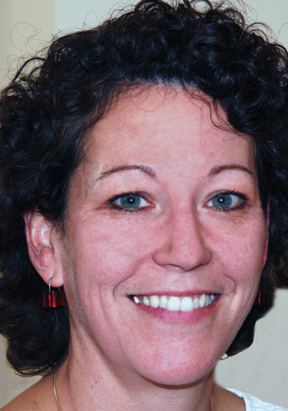Maternal Health Matters
Ann Starrs ’84 founded an international organization in which women help women.
Ann Starrs hopes that someday she will lose her job. Why? That would mean that her work as president of Family Care International (FCI) is no longer needed. “Ultimately, as with any development work, you’re really trying to work yourself out of a job,” she says, adding wryly, “I don’t think that’s going to happen anytime too soon.”
Family Care International (www.familycareintl.org) is an international nonprofit dedicated to improving women’s health during pregnancy and childbirth in the developing world. With maternal mortality rates in Africa ranging from 100 to 500 times higher than those in Western countries like the United States, Starrs has much to do.
Starrs was motivated to co-found FCI in 1987 when the World Health Organization released a global estimate of how many women die annually from pregnancy and childbirth complications—a number never discussed until then, Starr says.
That number? Half a million—“one woman dying every minute from the complications of pregnancy and childbirth. And 99 percent of those deaths occur in the developing world.” In the face of this, with only two employees, FCI was born. Today, it has a New York office, field offices in five African countries and two in Latin America, and program activities in 12 more countries.
Some of Starr’s early work was in Uganda, helping a coalition of local women’s groups organize a community education program for safer motherhood.
“I went out there and worked with them to design a fairly small (about a half-million dollar) project to recruit and train women in the community to be pregnancy monitors—to identify pregnant women in the community and educate them about risk factors during their pregnancy,” she says. “The midwifery, providing the actual health care, is the responsibility of the government. But usage was very low, so we were trying to get women—and, in particular, men—to understand the importance of good care during pregnancy, especially the importance of giving birth in a health facility, with a skilled attendant present.”
Her time working abroad, Starrs says, has broadened her perspective on international work. “It’s humbling to be aware that you can design these projects, but implementation can be very challenging, much more complicated than you necessarily envision.”
Although Starrs still travels for FCI, much of her travel these days is devoted to fundraising, networking, attending conferences, and making presentations. “As head of the organization, I don’t get to do as much of what I call the ‘fun stuff’—really seeing the projects on the ground,” she says.
Her networking pays off, though. FCI works with the United Nations and its affiliated agencies, the World Health Organization, and other nonprofit groups. Starrs hopes that her organization can serve as a coordinating bridge between maternal health advocacy and groups helping with related health issues in developing countries.
For example, she bemoans the fact that maternal health is often passed over in favor of an emphasis on childhood health. Not wishing to downplay childhood health initiatives, she adds, “I have two myself—children are important.” Still, she argues that maternal and childhood health shouldn’t be seen—or funded—as discrete issues. “There’s a link, obviously, between mothers and children. You’d be surprised how often the UN agencies and others can ignore that link.”
Similarly, Starrs wants to bring family-planning advocacy into a broader discussion of maternal health. “We’re really trying to bring the weight of both the maternal health community and the reproductive and family planning community together to advocate together for funding and attention to these issues,” she says.
Despite ever-present discouraging statistics about maternal mortality and difficulty fundraising in a worsening economic climate, Starrs remains hopeful. “I think there’s a lot of momentum around this issue right now… I think there’s going to be significant progress in this area over the next five to six years.” She also hopes Family Care International will grow—to an extent.
“One of my dreams, or hopes, is that we could expand and start some programs in Asia. I don’t want FCI to become huge. I’d hate to run an organization where I don’t know everybody in it by name. But we’re doing really good work, and I’d love to be able to do more of it in places where we can really make a difference.”
 Email This Page
Email This Page
